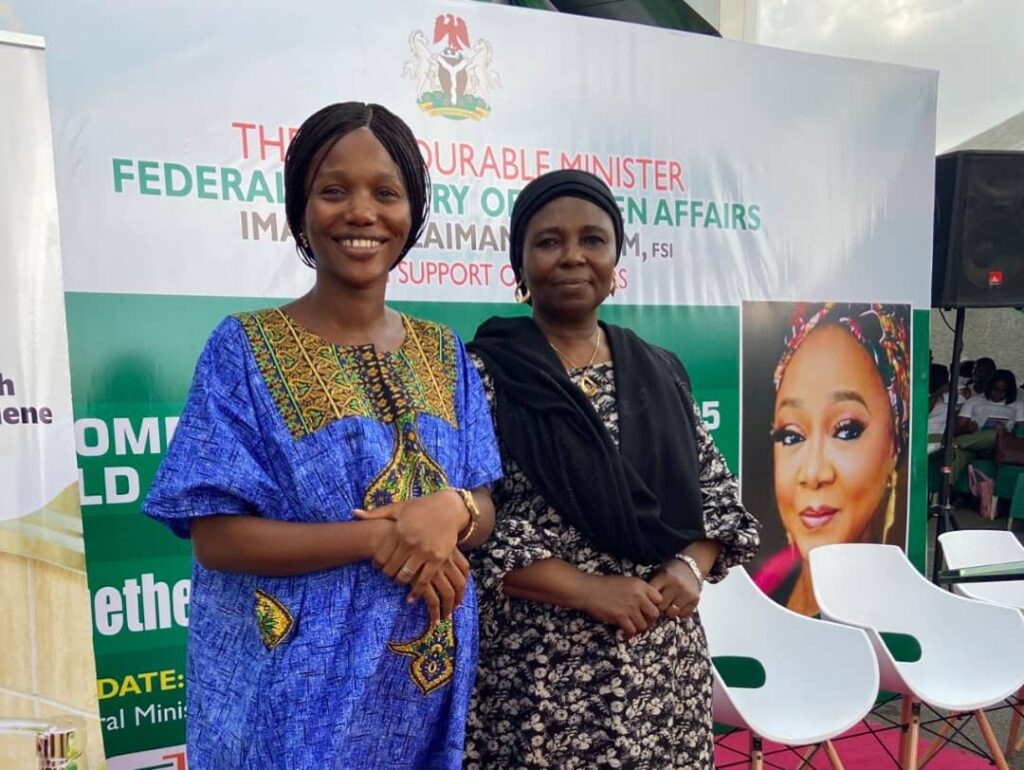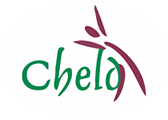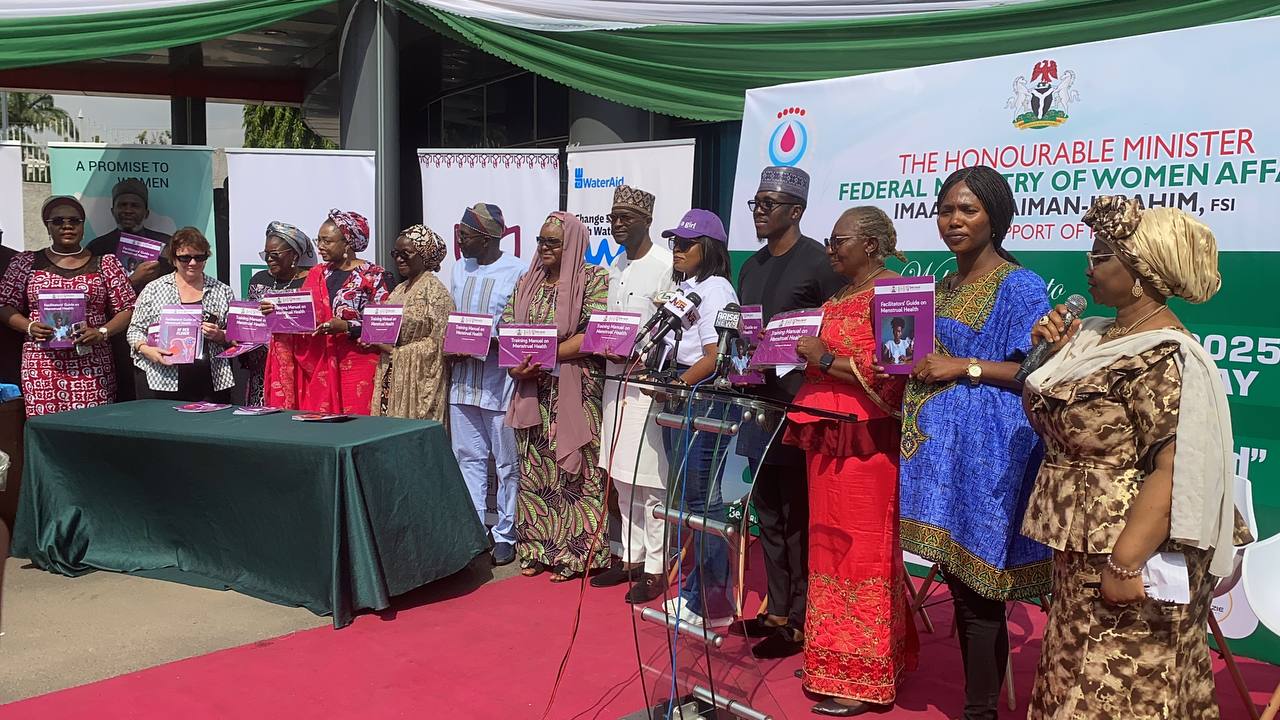Background
Period poverty refers to the lack of access to sanitary products, menstrual hygiene education, and facilities that enable safe and dignified management of menstruation. In Nigeria, approximately 25% of women and girls experience period poverty, with many resorting to unhygienic alternatives like rags, paper, or old clothes during menstruation. This practice increases the risk of infections and reproductive health issues, amplifying the truth that menstrual hygiene management is essential.
Menstrual hygiene management (MHM) is a fundamental component of health, human rights, and gender equality. It impacts the dignity, education, and well-being of millions of girls and women around the world. As we observe World Menstrual Hygiene Day 2025, with the theme “Together for a PeriodFriendlyWorld”, it is crucial to reflect on the progress and challenges in ensuring safe and dignified menstruation, particularly in countries like Nigeria, where period poverty continues to marginalise young women and girls.
The drivers of period poverty in Nigeria are multifaceted. Economic constraints represent a significant barrier, as high costs of sanitary products make them unaffordable for many, especially in rural and displaced communities. Compounding the economic constraints is the cultural stigma. Menstruation is often surrounded by taboos and misinformation, leading to shame and isolation for menstruating individuals. These deeply rooted cultural attitudes create additional barriers to accessing menstrual hygiene resources and discussing menstrual health openly. The situation is further complicated by inadequate facilities, as many schools and IDP camps lack proper sanitation facilities, hindering effective menstrual hygiene management.
While the National Health Policy 2016 recognises reproductive health, which encompasses menstrual health, there appears to be no proper implementation of menstrual hygiene initiatives. There is therefore a need for comprehensive, enforceable national strategies that guarantee free or subsidised menstrual products in schools and public institutions; the integration of menstrual health education into school curricula; and the provision of adequate water, sanitation, and hygiene (WASH) facilities in schools and communities.

CHELD’s Work to Promote Menstrual Hygiene Management
In response to the challenges faced by women and girls, particularly displaced women and girls, CHELD has implemented a comprehensive programme that aligns with Sustainable Development Goals (SDGs) 3,4,5, and 6, focusing on education and empowerment. The components of this programme are:
- Menstrual Hygiene Education: We conduct workshops in IDP camps, educating women and girls about menstrual health, hygiene practices, and the importance of self-care during menstruation.
- Reusable Sanitary Pad Production: Training sessions are held to teach participants how to make reusable sanitary pads using locally available materials. This skill not only provides a sustainable solution to period poverty but also promotes economic independence.
- Distribution of Reusable Pads: After training sessions, we distribute the pads to ensure that every participant has access to hygienic menstrual products.
- Community Engagement: We engage community leaders and stakeholders to foster an environment of support and understanding regarding menstrual health, breaking down cultural stigmas and promoting open dialogue.
Through these initiatives, we aim to improve health outcomes, empower women and girls to manage their menstruation with dignity and reduce absenteeism in schools. We are also contributing to the broader agenda of gender equality and sustainable development.
Recommendations
As we mark this year’s Menstrual Hygiene Day in Nigeria, CHELD recommends the following actions to ensure a more period-friendly Nigeria:
- Develop and Implement a National Menstrual Hygiene Policy
Nigeria must adopt a comprehensive, gender-responsive menstrual hygiene policy that recognises menstrual health as a public health and human rights issue. Such a policy should outline clear roles and responsibilities for federal, state, and local governments, prioritise budget allocation for menstrual health products, infrastructure, and education, and mandate that all schools, workplaces, and public institutions provide period-friendly environments, which include water, sanitation, waste disposal, and privacy.
- Provide Free or Subsidised Menstrual Products
The government can provide free or subsidised sanitary materials to girls, especially school girls and girls in rural communities. This would also include supporting local production and social enterprises that produce affordable, eco-friendly sanitary products while creating jobs.
- Integrate Menstrual Education into the National Curriculum
The National education curriculum on Menstrual health education must be age-appropriate, accurate, and inclusive. The curriculum should be tailored for implementation in both primary and secondary schools. It should be designed to dispel stigma, myths, and taboos. A key component of the curriculum is gender-inclusive participation, which ensures that both boys and girls receive education that fosters empathy and understanding.
- Empower Communities and Support Local Advocacy
Advocacy must be taken to the communities by engaging religious and traditional leaders to challenge cultural taboos. In this regard, community-led initiatives and NGOs working on menstrual health education and distribution must be supported.
- Support Research and Data Collection
Evidence drives policy. Conducting national and state-level surveys on menstrual hygiene access, attitudes, and challenges is very important. The government should encourage research to understand the impact of menstruation on academics, mental health, and employment so as to use data to design targeted interventions and evaluate outcomes.
Conclusion
As we commemorate Menstrual Hygiene Day 2025, we call on governments, NGOs, community leaders, and individuals to join hands in ending period poverty. Together, we can create a world where every woman and girl has access to the resources and education needed to manage her menstruation with dignity.
We invite you to support our initiatives through donations, partnerships, or volunteering. Together, we can make a lasting impact and empower displaced women and girls to thrive.

